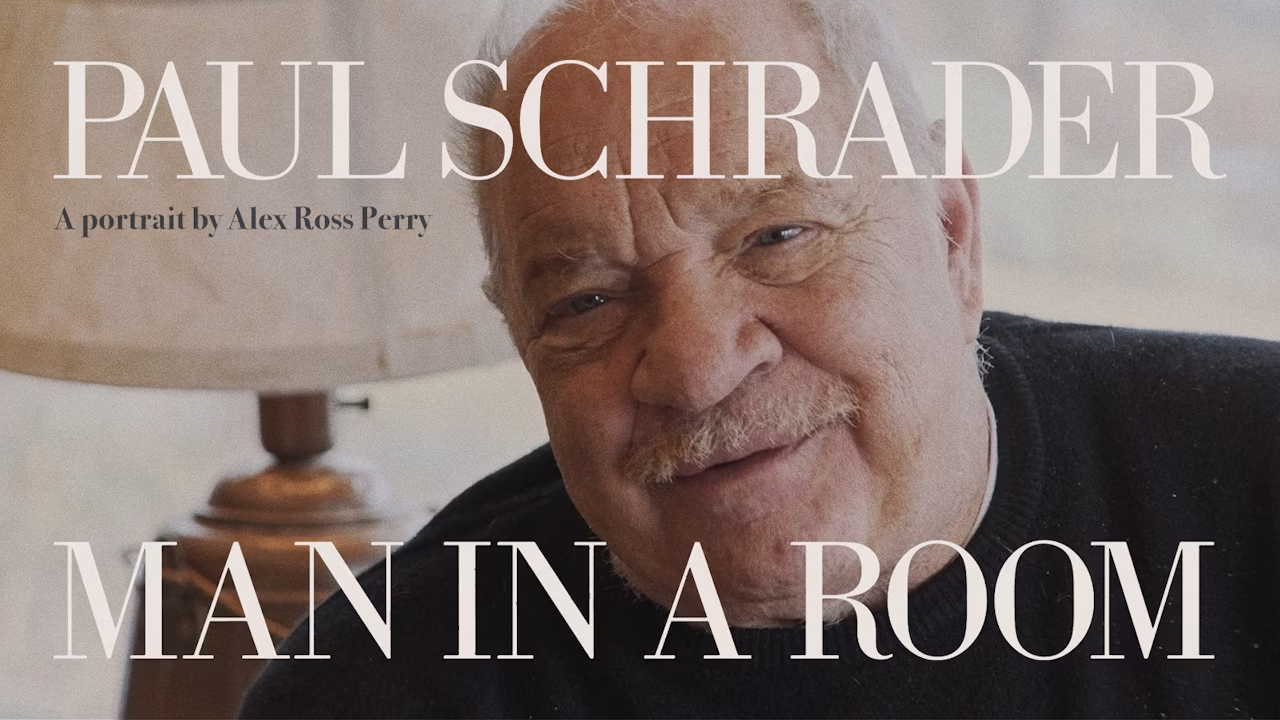
On this week’s episode of The Filmography podcast, Bjorn and I take a deep dive into Paul Schrader’s 21’s picture, “First Reformed,” for which he received his first Oscar nomination for Best Screenplay.


With “First Reformed,” Paul Schrader’s wilderness years are finally over. It seems “Dog Eat Dog” did what it was supposed to do, blasted away all the cobwebs, cleansed the palate (especially of “The Canyons”), done away with all of the experimentations of genre and style, and returned Schrader to his transcendental roots, exploring the influence of austere filmmakers like Ozu, Bresson, and Dreyer, on whom Schrader wrote the book that launched his career as a film critic even before he became a celebrated screenwriter and director.

From the moment we see Ethan Hawke alone in a room, sitting at a table, writing in a journal, we know immediately that this is not just a Paul Schrader picture, but one of his “man in a room” stories, a cycle which began with “Taxi Driver,” and includes “American Gigolo” (no journal writing), “Light Sleeper,” “The Walker” (no journal), “First Reformed,” and following that, “The Card Counter,” and “Master Gardner.”



These films are linked with common themes of isolation and self-destructive violence.



“First Reformed” recalls “Taxi Driver” in many other ways, too. Some similarities are superficial, referencing specific shots, such as the Pepto Bismol in the whiskey glass in “First Reformed,” and the Alka Seltzer in water in “Taxi Driver.”


Some references are more profound, such as the protagonists of both films attempting to save themselves by saving a young woman. In the case of “Taxi Driver,” that woman was initially a romantic interest, as played by Cybil Sheppard, before morphing into an actual rescue attempt, with the character played by Jodie Foster.


In “First Reformed,” both parts manifest in one character. Played by Amanda Seyfried, Mary is one of Reverend Tiller’s parishioners, a pregnant widow to whom he feels an immense sense of responsibility, since he blames himself for her husband’s suicide.

Unlike Travis’ relationships with Betsy or Iris, Rev. Tiller’s feelings for Mary are reciprocated, fuelled by a shared sense of grief and trauma. It is Schrader’s most tender romance to date, culminating in a hyper-stylized “magical mystery tour” sequence (as Bjorn calls it) that would have eyes rolling in the hands of most other directors, but coming from such an unsentimental filmmaker as Schrader, is actually quite moving.



With the success and acclaim of “First Reformed” Schrader must have realized he had finally hit upon the winning formula. His next two pictures, “The Card Counter,” and “Master Gardner,” would complete an unofficial “man in the room” trilogy.

Though “Light Sleeper” remains my favourite Schrader Picture, “First Reformed” may very well be his best. For the full breakdown on why, you’ll have to listen to the podcast!

Watch the trailer for “First Reformed” here:
Listen to Schrader’s audio commentary for “First Reformed” here:
Watch the “magical mystery tour” sequence from “First Reformed” here:

Read Mubi’s article “Everybody Sacrifices” here:
https://mubi.com/en/notebook/posts/everybody-sacrifices-paul-schrader-discusses-first-reformed
Read the NY Times review, “First Reformed Is An Epiphany…” here:
https://www.nytimes.com/2018/05/17/movies/first-reformed-review-paul-schrader-ethan-hawke.html
Listen to the Variety podcast, “Paul Schrader reflects on the long journey of ‘First Reformed'” here:
https://variety.com/2019/film/podcasts/playback-podcast-paul-schrader-first-reformed-1203136319

Watch Alex Ross Perry’s portrait of Paul Schrader, “Man In A Room,” on the Criterion Channel here:
https://www.criterionchannel.com/meet-the-filmmakers-paul-schrader

Read the Interview Magazine article “Paul Schrader tells Nicolas Cage why ‘First Reformed’ is his masterpiece” here:
https://www.interviewmagazine.com/film/paul-schrader-nicolas-cage-april-issue-2018-interview
